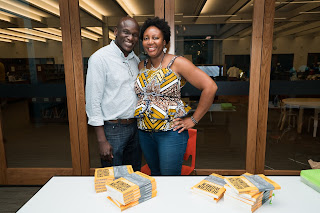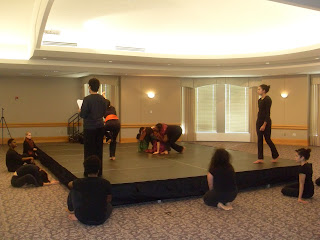FOR IMMEDIATE RELEASE
July 20, 2017
Contact: Rita Apaloo
rita.apaloo@gmail.com
(612) 250-8478
“African Women Connect” Book Launch Set for August 10, 2017
Launch event set for Rita Jackson Apaloo’s book about starting and growing a social and professional networking group involving women originating from twenty different African countries and the United States.
Brooklyn Park, Minn. – The general public is invited to attend the book launch event of “African Women Connect. How I started and grew a networking group of African immigrant women for friendship, business, and community,” self-published by Rita Jackson Apaloo in May 2017. It will be held on August 10, 2017, at the Brooklyn Park Library in the Mississippi River Room, located at 8500 W Broadway Ave, Brooklyn Park, MN 55443, from 6:00 to 8:30 p.m. The author will meet and greet guests, speak briefly, read excerpt from her book, and sell and autograph books.
When a person is uprooted from the only home they know and have, where there are family members, friends, a strong support system, and all things familiar including language, food and culture, it can be traumatic. Building new relationships through community that provides the appropriate supports can be critical and life-changing. People go about building community in a lot of different ways. Some turn to hobby groups, religious organizations, national heritage groups, ethnic groups, etc.
“For me, my passion around the plight of women and my curiosity about how African women, like myself, were faring despite being away from strong support systems and now living in the American society and culture (very different from where they were raised), led me to dream up and create African Women Connect,” said author, Rita Jackson Apaloo.
“African Women Connect (AWC) was created for African immigrant women to come together, get to know each other, build valuable relationships, share experiences and resources, and find solutions to issues affecting them and their community. “
In her book “African Women Connect. How I started and grew a networking group of African immigrant women for friendship, business, and community,” Apaloo talks about starting and growing AWC, which became a social and professional networking group that was active for over a period of six years, from 2004 to 2011. The chapters are her reflections on embarking on the journey to bring together African immigrant women from different countries and regions, which had not been done before then. She talks about how she made it happen through trial and error and by following a set of personal guiding principles that may seem simple in theory but not so much in practice, especially when working with individuals with various cultures, values and beliefs. In the book, she talks about successes, missteps, and discoveries along the way. Also included are unedited writings and pictures from AWC archives. At the end of the day, AWC was more than social and professional gatherings, it was a movement to connect African women to find their collective voice and build a stronger community.
Get this book if you are interested in relationship and community-building, whether for friendship, business or community, particularly in situations where the circumstances are unique or the audience characteristics are exclusive. The guiding principles used by the author can be applied universally. In addition, if you are interested in the immigrant experience, you will be inspired by the ingenuity of this story. The e-book version and paperback copies are currently available through Amazon and everywhere books are sold.
About the Author
Rita Jackson Apaloo, was reunited with family in the United States in 1992, following the Liberian Civil War. She resided in New York for one year and then moved to Minnesota in 1993, where she has since resided. Rita is very active in African immigrant communities and has been involved in various projects, and on boards and committees working to positively impact the lives of immigrants. In her role as education and outreach manager with a nationally affiliated nonprofit organization based in Minnesota, she was responsible for partnership management and program design and implementation in African immigrant communities in the Twin Cities Metro area. She has contributed writings to community newspapers such as Mshale and the African News Journal. Rita lives in Brooklyn Park with her husband and children.
# # #

























